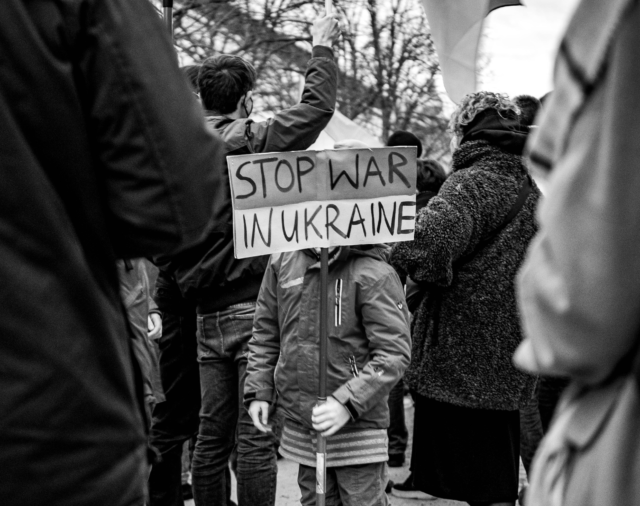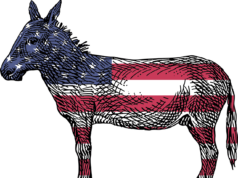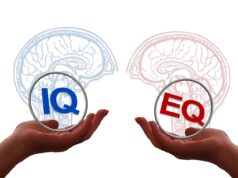
Photo by Katie Godowski from Pexels
It has been deplorable watching so many Ukrainians suffering from this indescribable tragedy and pain out of nowhere. How can we understand Russia’s cruel act of invasion into Ukraine from a psychological perspective?
If we understand the psychology of the development in our society and culture, we may find where the problem came from and what is the best approach to the situation from a psychological perspective.
First, the current situation in Ukraine may be an inevitable result of the breakdown of dialogue between Russian leaders and Western leaders.
It resembles the deadlock situation between couples or parent and child when the communications break down due to the difference in the emotional or socio-cultural conditions.
I have mentioned in my book, The five stages of civilization, Vol. II A Socio-cultural development (Roland kim, 2021B), that our society and culture follow a similar development pattern as individual emotional or personality development.
From the socio-cultural developmental perspective, Russia has been living in the competitive stage of 2 domestically while in Stage 1 of the authoritarian state in their international political affairs. Regarding international politics, Putin as a leader may have represented the sentiment and emotions of the older authoritarian generation at Stage 1.
On the other hand, the Western world, including the British and the U.S. leadership, represents the individualistic, libertarian socio-cultural stage at Stage 4 domestically while a competitive stance at Stage 2 in international affairs. When they were threatened of their security from 9/11, however, the U.S. had regressed toward an authoritarian state under the leadership that matched the citizens’ sentiment at the time. Putin used it as his excuse for his invasion, so in my speculation, the Western leadership may also be partly responsible for this type of development. Putin’s rationalization is to remove the neo-Nazi leadership, while the U.S. was to find the weapon of mass destruction.
As I pointed out in my prior publication, most violent attacks happen under authoritarian leadership, whether international or interpersonal, as in the case of domestic violence. The violence often occurs, mainly when the two parties cannot communicate to exchange their respective emotional or socio-cultural perspective due to their difficulty expressing their pent-up emotions of fear and anger rationally, as it may be possible in the later developmental stages.
Russia, in Authoritarian tradition, might have felt insecure about its survival when their former ally or a part of its family has been leaving them toward the Western and NATO side in the name of seeking democracy and freedom.
At least among the leaders, the Russians may have felt that their long-term ally or family has betrayed the mother country. As President Putin stated in his address, he may have thought of his invasion as his desperate survival measure and to protect the part of the Russian family who is in danger of genocide. Many people in the authoritarian-dependent state at stage 1 feel fear of survival, as I have witnessed through years of work as a psychologist and researcher.
While the Western countries feel that they have been in a territorial game with their rivals, the Russians may have felt desperate to defend their survival. It may be like a paranoid state that President Putin has been in regarding international affairs.
When Ukraine tried to join NATO, Putin may have felt rejected by the Ukrainians, their longtime family, and ally. Despite its effort to get more support from the Western and NATO countries, Ukraine will not get the support they desire except the weapons and equipment which will not be enough to beat the military giant like Russia which has superiority in air, missile, and nuclear power. Therefore, the Ukrainians may have to figure out a way to reduce the casualties and damages through their own creative solution.
Regardless of the result of this war, however, the overall development of the international community will be delayed unless the Western leaders show a more empathetic approach to have a dialogue or deal with the Russian leadership. If the Western leaders try to use this opportunity to build more power to bolster their side, it will extend another power game that will not end soon while the Ukrainians as a scapegoat country undergo further damage.
The Russian president Putin may have felt there had been no one to share his perspective with among the Western leaders. When President Biden stated, “Dictators must pay a price,” he did not recognize and accept that dictatorship or an authoritarian leadership is a kind of political system that many families, cultures, and societies have adopted and operated under, even among the Americans. The system is not out of one leader’s conscious decision without the supportive feedback from its family, society, or culture. When Donald Trump was the U.S. President, Putin might have felt accepted by a Western leader who understood his sentiment and perspective.
Therefore, for the better of our future domestic and international community, we need to develop a more inclusive approach to those leaders and the countries in a different political and socio-cultural stage. The police in the U.S. started to intervene only 30 years ago regarding domestic violence. However, in international affairs, it is more challenging for any country to play the role of police with any justification for intervention unless it is justifiable through genuine concern out of empathy.
The sentiment of the Russian leadership is beyond their control, as is that of the Russian citizens who have accepted him as their leader for many years. They will learn more through their own experiences toward their better political future; however, the change can be best achieved if it comes from within among themselves. For this reason, a more critical role for rival leaders should be a more inclusive, culturally-informed, and empathetic one.
As Ukraine has moved away from Russia toward NATO for more freedom and independence, Russia will feel betrayed as just the way any authoritarian parents at Stage 1 will feel when their adult children move away from them for more freedom and independence. It is natural for us humans to evolve or develop toward more freedom and individual happiness as we grow up; however, the best result of the independence movement can be achieved only with parental blessing and without any intervention by other potential rivals.
When the U.S. declared independence from Great Britain, Thomas Paine (1969) shared his conviction that the homeland will not hurt their freedom movement. He said, in his Common Sense, “[b]ut Britain is the parent country, say some. Then the more shame upon her conduct. Even brutes do not devour their young, nor savages make war upon their families” (p. 38). An interesting hypothesis is that at the moment if the U.S. movement toward independence was assisted by any outsiders with who the mother country was in rival, it is unknown how the mother country might have reacted to the movement.By Roland Kim
Ukraine needs to acknowledge that she owes her parent country as their security blanket while going through their incubational period and that Russia had been part of their family for a long before they became ready to seek freedom and democracy. Internationally, Russia as an authoritarian culture at Stage 1 may still think of Ukraine as its family. The Western leaders using only sanctions, instead of an attempt to understand its psychology through dialogue at an equal level with the Russian leaders from an empathetic stance, may make the Russian leaders feel further isolated and resort more to the desperate measure to prove their point. Russia is different from Western societies in its emotional and socio-cultural stages.
History and therapy have equally proven that empathy, not punishments or sanctions, will make one readily change the way they see the world. It is expected that most authoritarian nations operate on a policy out of fear for survival, and competitive, narcissistic countries operate out of anger and greed-based imperialistic policy, as I pointed out in my book, The Five Stages Civilization (Kim, 2021B). According to the emotional and socio-cultural development theory, for any country initiating war or violence-prone individuals, fear at Stage 1 is the main driving force than anger and greed at stage 2 or anxiety and guilt concern at stage 3. Like domestic volence in a deadlock marriage, most war may be initiated by fear-based authoritarians when their survival is threatened; however, as in the case of the marriage with communication breakdown, its excuse is to defend against unempathetic selfish partners/countries at Stage 2. Therefore, the authoritarian’ motivation for a violent attack may not effectively be thwarted by the interest-oriented policy using financial sanctions.
Whether in individual matters or international politics, a dialogue based on
Understanding through empathy than through power or logical consequences (sanctions) will motivate any voluntary change. Under President Zelensky’s leadership, Ukraine seemed to have started its counter-dependent, competitive stage at 2, going defiant and separating from its parent country, which may have been felt as a threat to the authoritarian regime under President Putin.
Therefore, Ukraine’s request for joining NATO may have provoked the Russian leadership to show less sympathy but more fear and insecurity to justify the increase of its attack. It is a classic case of the deadlocked relationship between the authoritarian partner at Stage 1 and the competitive, counter-dependent partner at Stage 2 as in the deadlock marriage.
The Russian leaders accused that Western leaders might have listened but never heard the complaints made by Russia for a long time. In other words, as in many cases of the domestic mass shooting in the U.S., the pent-up hostility from traumas experienced may have been escalating for a while before its eventual explosion. Sadly, the consequence-based sanctions or punishment may not turn the minds of those at the explosive state as we have experienced through many domestic shootings. Among the Western, Ukrainian, and Russian leaders, if at least one party can start to show empathy to rebuild trust to deescalate or neutralize the hostility as is explained in my trauma-hostility diagram (Kim, 2021A, p. 160), it may facilitate to get them out of the deadlocked situation to start a more successful dialogue to reach a prompt solution to prevent further collateral damages in the process.
References
Kim, R. (2021A). The five stages of civilization: An integrated psychological and psychoanalytic perspective: A personality development. Living Free Publishing Co.
Kim, R. (2021B). The five stages of civilization: An integrated psychological and psychoanalytic perspective: A socio-cultural development. Living Free Publishing Co.
Paine, T. (1969). Common sense, human rights, and other essential writings of Thomas Paine with an introduction by Sidney Hook. A Meridian Book.
Post navigation
Next post:An interview on the psychology of mass shootings in America with Roland Kim








